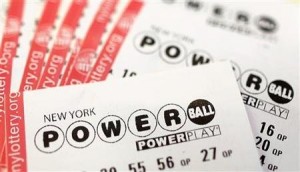The Lottery Tax

 What would you do if you won the lottery?
What would you do if you won the lottery?
This is the dream-inducing question that every lottery-playing American thrives on. But the Lottery is a scam and a terrible institution; it preys on the unattainable hopes of dreamers and feeds on the vulnerable and economically disadvantaged.
Now don’t get me wrong, I understand that there are people who gamble responsibly. And by responsibly, I mean that they grab $100 and truck down to Atlantic City expecting to lose it all. They just want to have fun and know that they would have spent $100 on a night out in Atlantic City, regardless of where they went. I am not one of those people. I can think of 100 other ways to spend that $100 dollars that would lead me to more certain happiness than a slot machine (or, even worse, scratch-off cards).
People who enjoy gambling enjoy the uncertainty, the rush. The belief you are going to win feeds the machine and allows the Lottery to thrive. The belief that “you could be the one” is reflected in USA Today’s list of tips for what to do “after you win the Powerball.” Because, apparently, winning is a near certainty for people who read USA Today online.
In 2010, U.S. lottery sales totaled $58 billion, according to the North American Association of State and Provincial Lotteries. More than half of us have played the lottery in the last year, although 20% of customers buy the majority of the tickets.
The problem with the Lottery isn’t only the deliriously low chance of winning, but rather the disproportionate effect of the lottery on lower income individuals. According to Business Insider, which lists an impressive set of statistics that illustrate how the Lottery tends to take money from poor people:
- In North Carolina, the highest per capita lottery sales were in the poorest counties. Residents from the poorest areas would spend over $400 each per year on lottery tickets.
- People in households earning $40,000 accounted for 28% of South Carolina’s population but made up 54% of frequent players.
- Texas instant tickets were more likely to be purchased by a person who was out of work than someone who was employed or retired.
- A 1994 study from Indiana University found that lottery sales tend to rise with unemployment rates.
The lottery industry is often criticized for being an unfair tax on the poor. If you buy the idea that the lottery is a tax, whether you think it’s voluntary or not, the next step is to realize that it is a regressive tax. It’s regressive because a ticket costs proportionately more for a poor person than it does for a rich person. The Lottery also imposes a punitive tax on the poor because of the disproportionate number of poor and uneducated people who buy lottery tickets. On average, households that make less than $12,400 a year spend 5% of their income on lotteries, according to Wired. According to Forbes, the number is 9% for Americans making less than $13,000 per year.
Lotteries are worse for poor people who have a smaller margin of error and can’t survive a loss of income that would be negligible for richer people. So whether or not you believe the lottery is a monetary tax on the poor not, it can hardly be doubted that it imposes social costs.
The facts show us that the stakes are high and the payout is unlikely, so why does the government still endorse the Lottery? Maybe because 25% of the profit goes directly into the government’s pocket. Or maybe because Americans still want to play the lottery, despite its proven negative consequences. Maybe it’s just me, but isn’t it the government’s job to save us from ourselves?

This is a classic case of confusing correlation with causation. Being poor is not the cause of the lottery tax. Being stupid is the cause of the lottery tax. And it’s a bit naive to think the government’s primary interest is anything other than justifying more government, meaning spending more money however it’s raised.